LEVOTIRON 100
35.00$ Original price was: 35.00$.34.00$Current price is: 34.00$.
The thyroid hormone, thyroxine (T4) is a tyrosine-based hormone which is produced by the thyroid gland. Synthetic versions of this hormone are used to make up for a lack of naturally produced thyroxine and increase the rate of metabolism. Artificially made thyroid hormone improves the symptoms of hypothyroidism (underactive thyroid) and speeds the rate of metabolism in those who suffer from the disease. Thyroid hormones may also be used to treat goiter (enlarged thyroid gland) and certain types of thyroid cancer.
Thyroid hormone controls the rate of metabolism. When the thyroid is under active, all body processes slow down and symptoms such as weight gain, fatigue, and decreased body temperature are experienced. Through supplementation of thyroid hormones, basal metabolic rate will be increased.
Thyroid hormones are essential to proper development of all cells in body. These hormones allow for the body to become more sensitive to all other hormones, in turn making them more effective. Thyroid hormones also regulate macronutrient (protein, fat and carbohydrate) metabolism, therefore increasing protein synthesis and ultimately energy. This allows for the body to burn more calories and use them more sufficiently. For this reason, thyroid hormones are commonly used as fat-loss drugs.
This medicine does not typically cause side effects as long as proper dosages are administered. However some drawbacks of Thyroid drug use are cardiac stress and possible loss of lean body mass. Negative feedback in the thyroid can decrease natural production of thyroid hormone, causing short term decrease of metabolic rate after use is discontinued.
Indications:
Replacement therapy in the treatment of hypothyroidism . Suppress the secretion of TSH in condition such as diffuse non–toxic goitre and Hashimoto’s thyroiditis and thyroid carcinoma.
Contraindications:
Acute myocardial infarction and thyrotoxicosis uncomplicated by hypothyroidism . Hypersensitivity to active or extraneous constituents.
Adverse reactions:
The adverse effects are generally associated with excessive dosage and correspond to symptoms of hypothyroidism. Tachycardia, palpitations, cardiac arrhythmias, aginal pain, headache, nervousness, insominia, tremors, muscle weakness and cramps, heat intolerance, sweating, flushing, fever, weight loss, menstrual irregulavities, diarrhaea and vomiting.
Interactions:
- Antiarrhythmics (Amiodarone)
- Antibacterials (Enzyme induction by rifampicin)
- Anticoagulants
- Antidepressants
- Antidiabetics
- Antiepileptics
- Antimalarials
- Antivirals Beta Blockers
- Cardiac glycosides
- Gastrointestinal drugs
- General anaesthetics
- Iron salts
- NSAIDs
- Sex hormones.
Warnings:
Obesity, infertility, cardiovascular disease, endocrine disorders, Morphologic hypogonadism and nephrosis, Myxedema. Abuse, Arenocortical insufficiency, Myasthenia.
Be the first to review “LEVOTIRON 100” Cancel reply
Related products
Weight management
Weight management
Weight management



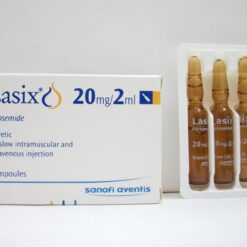


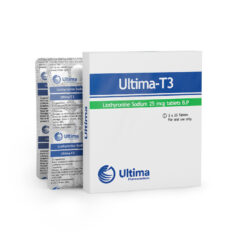
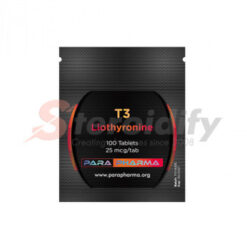
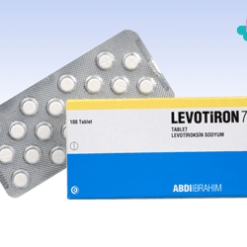

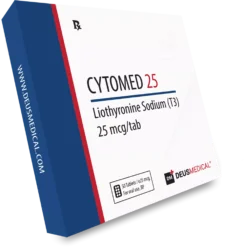


Reviews
There are no reviews yet.